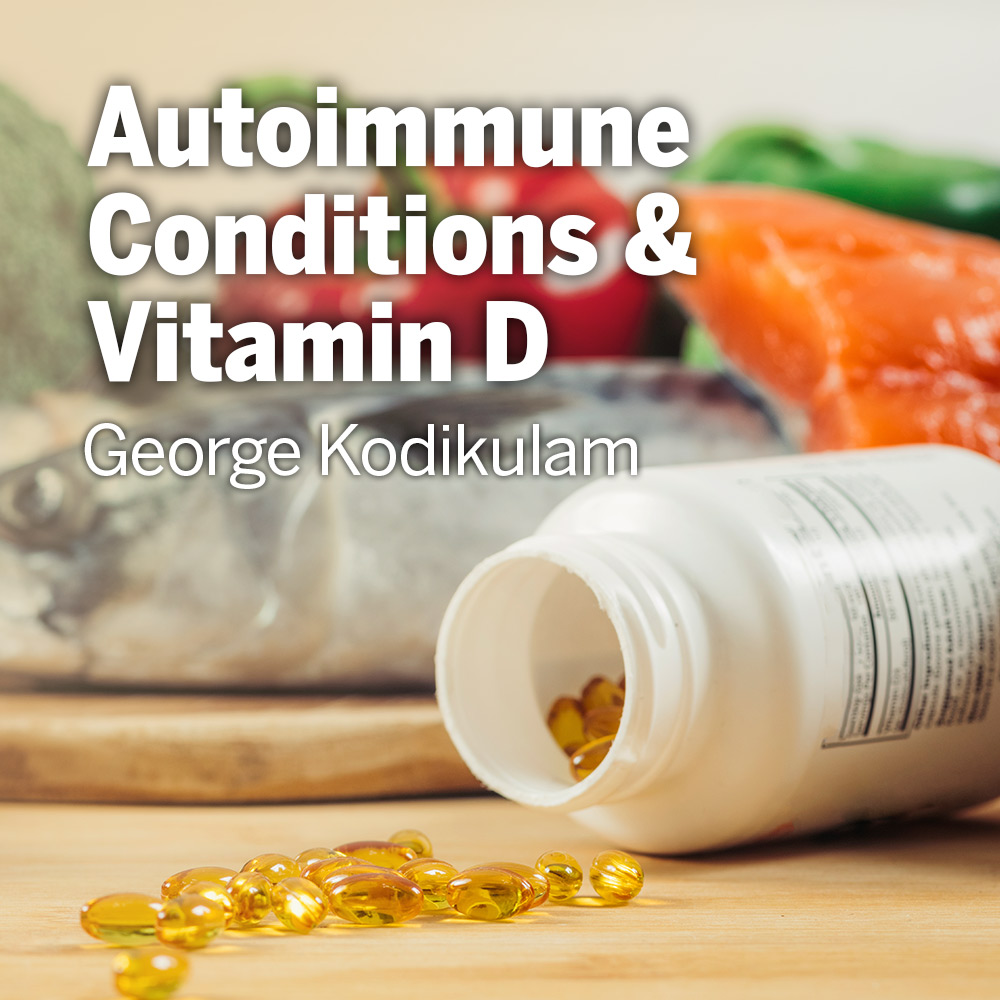What is an Autoimmune condition?
Autoimmune conditions are a group of diseases in which the immune system of the body mistakenly attacks and destroys its own healthy cells and tissues. These conditions can affect different parts of the body, ranging from the skin and joints to the organs, and can cause a wide range of symptoms and complications.
Autoimmune conditions can be difficult to diagnose because the symptoms may mimic other health problems, and can also vary greatly from one person to another. In some cases, multiple autoimmune conditions can occur at the same time, making diagnosis even more complicated.
The diagnosis of autoimmune conditions typically involves a combination of physical examination, blood tests, imaging studies and biopsy. Treatment of autoimmune conditions may involve medications, such as nonsteroidal anti-inflammatory drugs (NSAIDs), corticosteroids, immunosuppressants, and biologic drugs.
The exact cause of autoimmune conditions is not yet fully understood, but there are several theories that suggest that a combination of genetic, environmental and lifestyle factors may play a role. Some autoimmune conditions may be triggered by an infection or exposure to certain environmental toxins, while others may be due to a combination of genetic and environmental factors.
The exact cause of autoimmune conditions is not yet fully understood.
In this article I am going to highlight the importance of vitamin-D and its role in regulating the immune system, and how vitamin-D could be used to help reduce/prevent the occurrence of Autoimmune conditions.
Vitamin-D: Eyes of the immune cells?
Vitamin-D is a fat-soluble vitamin that has a crucial role in regulating a wide range of biological processes, including bone health, immune function, and cellular function. The levels of vitamin-D in the human population have changed over time due to various factors, such as changes in lifestyle, dietary habits, and exposure to sunlight. Historically, humans obtained most of their vitamin-D from sun exposure and from eating fatty fish. As people started to live and work indoors, their exposure to sunlight decreased, leading to lower vitamin-D levels. In addition, dietary habits shifted away from traditional sources of vitamin-D, such as fatty fish and Sunlight, and towards more processed foods, further reducing vitamin-D intake. Studies have shown that vitamin-D deficiency is now widespread, affecting an estimated 1 billion people worldwide.
As people started to live and work indoors, their exposure to sunlight decreased, leading to lower vitamin-D levels
| Recommendations by Vitamin-D Council | Recommendations by Endocrine Society/ml | |
| Deficient | 0-30 ng/ml | 0-20 ng/ml |
| Insufficient | 31-39 ng/ml | 21-29 ng/ml |
| Sufficient | 40-80 ng/ml | 30-100 ng/ml |
| Toxic | >150 ng/ml |
Vitamin-D – 25-OH Test Results: Source Autoimmunity Center – Dr Renuka Mahatani
Vitamin-D modulates the immune system through the vitamin-D receptors (VDR). Vitamin-D is converted into its active form, 1,25-dihydroxyvitamin-D (calcitriol), in the kidneys, and then travels to target tissues to bind to the VDR. VDRs are often referred to as the “eyes of the immune system” because they help monitor and regulate the activity of the immune system. Just as the eyes are the organs that allow us to see and understand our surroundings, the VDRs help the immune system to sense and respond to changes in the body’s environment making it an important component in maintaining immune health and potentially impacting the development of autoimmune diseases.
Furthermore, studies are also being done to understand DNA variations that lead to functioning of VDR ( Polymorphism). This is a condition where individuals can have different forms of VDR which, in turn, can affect the ability of the body to absorb and use vitamin-D.
For example, Interleukin-17 (IL-17) is a type of cytokine, a signaling molecule (plays a critical role in regulating immune and inflammatory response), which has been shown to be a key driver in the development of psoriasis. VDR activation by vitamin-D has been shown to inhibit the production of IL-17 by T cells. There is evidence to suggest that low levels of vitamin-D can lead to an overactive IL-17 pathway and a corresponding increase in the severity of autoimmune conditions like psoriasis. Conversely, supplementation with vitamin-D has been shown to reduce the severity of psoriasis symptoms, as well as other autoimmune conditions, by inhibiting the IL-17 pathway.
There is evidence to suggest that low levels of vitamin-D can lead to an overactive IL-17 pathway and a corresponding increase in the severity of autoimmune conditions like psoriasis.
Gut Health and Vitamin-D
Gut health refers to the overall well-being of the digestive system, including the stomach and intestines. A healthy gut is characterized by a balanced microbiome, a smooth digestive process, and the absence of symptoms, such as bloating, constipation, diarrhea, and abdominal pain. Autoimmune conditions and gut health are interconnected, as the gut microbiome plays a critical role in the regulation of the immune system. Any imbalance in the gut microbiome can lead to an increased permeability of the gut wall (also called leaky gut), which allows harmful substances to pass into the bloodstream, leading to low-grade systemic inflammation and triggering an autoimmune response. Recent studies have shown that vitamin-D plays an important role in gut health and can play a vital role in preventing leaky gut.
Autoimmune conditions and gut health are interconnected, as the gut microbiome plays a critical role in the regulation of the immune system.
Vitamin-D: Calcification and addressing with Vitamin-K2
Vitamin-D supplement is often suggested to be taken alongside Vitamin K2 and Magnesium. Vitamin-D helps in the absorption of calcium from the gut into the bloodstream, while Vitamin K2 directs calcium from the blood to the bones, where it is needed, and away from the soft tissues, where it can cause problems. Taking vitamin-K2 along with vitamin-D can help in the proper utilization of calcium in the body and can also help in reducing the risk of calcium deposition in soft tissues. Additionally, vitamin-K2 has been shown to improve the efficiency of vitamin-D, helping to increase its biological activity.
Taking vitamin-K2 along with vitamin-D can help in the proper utilization of calcium in the body and can also help in reducing the risk of calcium deposition in soft tissues.
Coimbra protocol: A Treatment Approach for Autoimmune Conditions
The Coimbra Protocol is a treatment approach for autoimmune conditions that was developed by Dr. Jorge Cortes-Coimbra, a neurologist and researcher from Portugal. The protocol involves the use of high doses of vitamin-D, along with other nutrients and lifestyle changes, to treat autoimmune conditions, such as multiple sclerosis, lupus, rheumatoid arthritis, and others.
The underlying theory behind the Coimbra Protocol is that autoimmune conditions are caused by a combination of genetic and environmental factors, including a lack of sunlight exposure and low vitamin-D levels. By increasing vitamin-D levels through high doses of supplementation, the protocol aims to modulate the immune system and reduce the severity of autoimmune reactions.
It is important to note that while the Coimbra Protocol may help to manage some autoimmune conditions, it is not a cure. The Coimbra Protocol may be part of this treatment plan, but it is important to talk to a doctor or a registered dietitian before starting high doses of vitamin-D, as too much vitamin-D can lead to toxic levels and cause health problems.
Conclusion
In conclusion, vitamin-D plays a role in the management of autoimmune conditions by regulating the immune system and reducing chronic inflammation. Adequate vitamin-D intake can be achieved through exposure to sunlight, a balanced diet that includes vitamin-D rich foods, or a vitamin-D supplement. Patients with autoimmune conditions should work closely with their healthcare provider to develop an individualized treatment plan that includes vitamin-D as needed.
Please Note: I am not a healthcare professional. I am just sharing the knowledge that I gained during my quest to address my own fight with Autoimmune condition. I have found that Vitamin-D and Omega-3 fatty acids are commonly studied in relation to autoimmune conditions.They are believed to play a key role in regulating the immune system. The relationship between autoimmune conditions, vitamin-D, and omega-3 fatty acids is complex and requires further research. However, I have found positive impacts by taking Vitamin-D and Omega-3 on my autoimmune condition.
Here are some research articles if interested:
- Here is a good talk from Dr Renuka Mahatani who is a Coimbra Protocol doctor in India
- Coimbra Protocol https://www.coimbra
- Vitamin D supplements lower risk of autoimmune disease, researchers say :https://news.harvard.edu/gazette/story/2022/01/vitamin-d-reduced-rate-of-autoimmune-diseases-by-22/
- Vitamin D and marine omega 3 fatty acid supplementation and incident autoimmune disease: VITAL randomized controlled trial https://www.bmj.com/content/376/bmj-2021-066452




